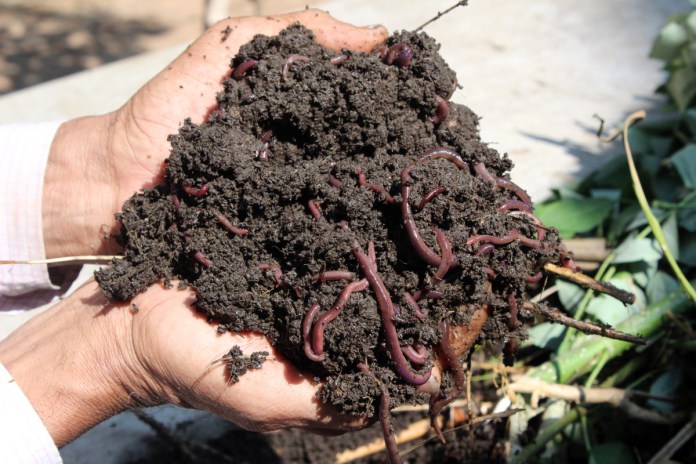In the world of agriculture and gardening, the quest for the perfect fertilizer is a never-ending journey. Gardeners and farmers alike are constantly on the lookout for nutrient-rich, eco-friendly, and cost-effective ways to enhance soil fertility. Vermicompost has emerged as a popular choice in recent years, but the burning question remains: Is vermicompost a complete fertilizer? Let’s delve into this organic soil conditioner and find out.
What Is Vermicompost?
Vermicompost fertilizer, often referred to as “black gold” by gardening enthusiasts, is a type of compost produced through the decomposition of organic materials by earthworms. This natural process results in nutrient-rich, humus-like material that can greatly improve soil quality. But is it complete in terms of providing all the essential nutrients for plant growth?
The Nutrient Profile of Vermicompost
Macronutrients
-
Nitrogen (N): Vermicompost is a good source of nitrogen, a vital nutrient for plant growth. Nitrogen is responsible for promoting leafy growth and overall plant vigor.
-
Phosphorus (P): Phosphorus is crucial for root development, flowering, and fruiting. Vermicompost contains moderate levels of phosphorus.
-
Potassium (K): Potassium is essential for plant stress tolerance and disease resistance. Vermicompost typically contains adequate levels of potassium.
Micronutrients
-
Calcium (Ca): Calcium is necessary for cell wall structure and root development. Vermicompost contains varying amounts of calcium.
-
Magnesium (Mg): Magnesium plays a role in photosynthesis and overall plant health. It can be found in vermicompost, although levels may vary.
-
Iron (Fe), Zinc (Zn), Copper (Cu), and Manganese (Mn): These micronutrients are essential for various biochemical processes in plants. Vermicompost contains trace amounts of these elements.
The Completeness Debate
While vermicompost does contain a range of essential nutrients, it is not typically considered a “complete” fertilizer. Here’s why:
1. Nitrogen-Potassium-Phosphorus (NPK) Ratio
Complete fertilizers are often characterized by their specific NPK ratios. Vermicompost may not always have the ideal NPK balance for certain plants. Depending on the feedstock used to produce it, the NPK ratio can vary.
2. Limited Micronutrient Levels
Although vermicompost does contain micronutrients, it may not provide sufficient quantities for all plants’ needs. Some plants, especially those with specific micronutrient requirements, may benefit from supplemental fertilization.
3. Slow Release
Vermicompost releases nutrients slowly over time. While this is excellent for soil health and microbial activity, it may not meet the immediate nutrient demands of fast-growing crops.
How to Use Vermicompost Effectively
To make the most of vermicompost as a soil amendment, consider the following tips:
-
Mixing: Blend vermicompost with your garden soil or potting mix to improve nutrient availability.
-
Compost Tea: Create a nutrient-rich compost tea using vermicompost to provide a quick nutrient boost to plants.
-
Top Dressing: Sprinkle vermicompost around the base of established plants as a top dressing to gradually release nutrients.
-
Mulching: Use vermicompost as a mulch to conserve moisture and promote a healthy soil ecosystem.
Conclusion
In conclusion, vermicompost is undoubtedly a valuable addition to any gardener’s toolkit. While it may not be a complete fertilizer in the traditional sense, its numerous benefits for soil health, microbial activity, and long-term plant growth cannot be denied. To achieve optimal results, consider combining vermicompost with other fertilizers or amendments as needed, ensuring your plants receive all the nutrients they require. There are various advantages of vermicomposting for plant growth.
FAQs (Frequently Asked Questions)
-
Is vermicompost better than chemical fertilizers?
- Vermicompost offers a more holistic approach to soil improvement, but it may not always replace chemical fertilizers entirely. It depends on your specific gardening goals and the needs of your plants.
-
Can I use vermicompost for indoor plants?
- Absolutely! Vermicompost is an excellent choice for indoor plants, as it enriches the soil and enhances plant health.
-
How do I make vermicompost at home?
- You can create vermicompost at home using a worm bin or composting setup. It’s a sustainable way to recycle kitchen scraps and create nutrient-rich soil amendments.
-
Does vermicompost have a strong odor?
- No, properly maintained vermicompost bins should not emit a strong odor. Good ventilation and balanced moisture levels are key to preventing unpleasant smells.
-
Is vermicompost safe for organic gardening?
- Yes, vermicompost is a staple in organic gardening. It aligns with organic gardening principles by improving soil health without synthetic chemicals.
Read More: What are the nutrients in Jeevamrutham?


